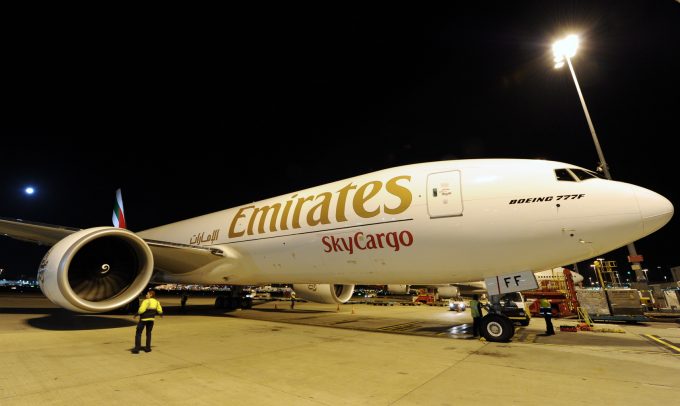Air cargo peak? What peak? But we're 'very, very busy', says market
Airfreight is not experiencing a ‘peak’ season – but is certainly enjoying a busy and ...

Emirates has scaled back its Nigeria routes in response to a worsening currency crisis in the country.
The carrier confirmed to The Loadstar this morning that it would stop services between Dubai and Abuja from the end of October, although it will continue its daily flight to Lagos.
“The decision was made after a review of the airline’s operations to ensure the best utilisation of its aircraft fleet for its overall business objectives,” an Emirates spokesman said.
Emirates’ decision mirrors those of Iberia and United ...
'Disastrous' DSV-Schenker merger would 'disrupt European haulage market'
'To ship or not to ship', the question for US importers amid tariff uncertainty
'Chaos after chaos' coming from de minimis changes and more tariffs
List of blanked transpac sailings grows as trade war heats up and demand cools
EC approves DSV takeover of DB Schenker
Shippers in Asia restart ocean shipment bookings – but not from China
Forto 'sharpens commercial priorities' as it lays off one-third of staff
India withdraws access for Bangladesh transhipments, in 'very harmful' decision
'Tariff hell' leaves industries in limbo – 'not a great environment to plan'
Temporary tariff relief brings on early transpacific peak season
Pre-tariff rush of goods from US to China sees air rates soar, but not for long
De minimis-induced ecommerce demand slump could cripple freighter operators
Asian exporters scramble for ships and boxes to beat 90-day tariff pause
Forwarders 'allowing the fox into the chicken run' by supporting 'hungry' carriers
Hapag 'took the bigger risk' when it signed up to Gemini, says Maersk
'Restoring America's maritime dominance' – stop laughing at the back of the class

Comment on this article